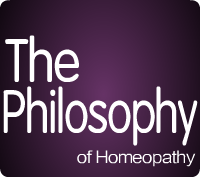 |
In the philosophy of Homeopathy, all creatures have an innate ability of self healing. This is the gift of natural self repair and regulation. Since ancient times, different cultures give different names to this power: The Chinese called it "Qi". The Japanese called it "Aikido". Indian called it "PRANA". It is also known as "Inborn Wisdom" in Chiropractic and “Vitality” in Ancient Greece and Homeopathy. |
Symptoms are not diseases
This inherent "vitality" will automatically maintain good health, resist to the external interference, and make appropriate treatment of injuries. All these are the ways of survival in the nature. For example, when we have a sprained ankle, the wound will be sore, swollen with inflammation. Sore is a signal, with its purpose to enable the body to know the position of the injured, and protect the affected area. Inflammation occurs when the body causes a lot of blood and nutrients to flow into the affected area, and removes the damaged cells . This will rise up temperature of the affected area, speed up the metabolism and increase the speed of the body repair. For another example, when we take in contaminated or toxic food, we will soon vomit or have diarrhea. This is the fastest way to expel the harmful substances out of the body. Initially the body dilutes the toxins with the water in the body, followed by expelling the toxins from the body through vomiting and diarrhea. And also, when we inhale irritating substances, such as dust, pollen, etc., we will immediately sneeze, cough, and have runny nose. This is the way the body drains away the foreign matter from the respiratory system through the air current and moisture. Besides, when the body is infected, the body temperature rises up as "fever". Fever can strengthen the phagocytic activity of white blood cells inside the body, enforce the function of the immune system, and help to eliminate the problems caused by infection. These so-called symptoms of inflamed sore, diarrhea, vomiting, coughing, sneezing, runny nose and fever, in fact, is the body's innate self-protection response. The purpose is to recover the body health.
Therefore, from the point of view in Homeopathy, the correct treatment must be made with the least aggressive approach and toxic free remedy, in order to recover the homeostasis in the body, enhance the constitution, relieve the discomfort due to the symptoms caused by the strengthen body immunity. On the other hand, it should not oppose to the self symptoms and suppress the self-protection functions of the body, such as the medication to relieve a cough, stop vomiting, reduce inflammation, relieve pain, etc.; otherwise it will lead to serious consequences. Then someone may ask, what to do in case of non-stop bleeding, broken bones, skin burns?
The Spirit of Homeopathy
When the body is severely traumatized, it will temporarily lose the power of self-regulation. Now the body needs an effective foreign aid, or else leading to death. At this critical moment, the timely action is very important, such as vascular closure, reduction of blood loss, or joining the fractures of joints allowing them to grow back together, but please bear in mind: “Doctors cannot make the joints to grow back together. It actually relies on the innate self-healing power of the body.”
Since Homeopathy regards that health is the inborn potentiality possessed by human being, and not provided by the medical personnel to patients. Therefore, in the course of treatment, patients should be treated as work partners, sharing responsibility, and be responsible for their own health problems.
References:
- Dorland’s Illustrated Medical Dictionary, Twenty-fifth Edition, W. B. Saunders, Philadelphia. London. Toronto, 1974. p.1413, 1119.
- Robins-Cotaran, “Pathologic Basis of Disease,” Chapter 3: Inflammation and Repair, Inflammation pp. 55-90. W. B. Saunders Company, Philadelphia. London. Totonto. 1979.
- Kluger, Matthew. “Fever,” Pediatries, 66 (Nov., 1980):720-724.
- Kluger, Matthew, “Fever: Effect of Drug-Induced Antipyresis on Survival,” Science, 193, (July 16, 1976): 237-239.
- Kluger, Mattew, “Fever and Survival,” Science 188, (April 11, 1975): 166-168.
- Boyd, William, “An Introduction to the Study of Disease” (Philadelphia: Lea and Febiger, 1972), pp. 95-110 (Process of inflammation).
- DuPont, H. L., Hornick, R. B., “The Adverse Effect of Lomotil Therapy in shigellosis”, JAMA, 226 (Dec., 24, 1971): 1525-1528.
- Dorland’s Illustrated Medical Dictionary, Twenty-fifth Edition, W. B. Saunders, Philadelphia. London. Toronto, 1974. p. 453.